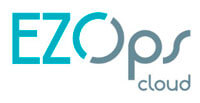In recent years, PHP development has seen a significant shift towards containerization and Docker, revolutionizing the way developers build, ship, and run applications. Docker has emerged as a powerful tool for PHP developers, offering a consistent environment across different stages of development, from local development to testing and production.
Understanding Docker
Docker is a platform designed to make it easier to create, deploy, and run applications using containers. Containers allow developers to package an application with all of its dependencies into a standardized unit for software development. This ensures that the application will run on any environment, regardless of any customized settings or system configurations.
Benefits of Using Docker for PHP Development
Consistent Development Environment
Docker enables developers to create a consistent development environment across different machines, ensuring that the application behaves the same way in every development environment.
Simplified Setup
With Docker, setting up a PHP development environment becomes a seamless process, as developers can define the environment and dependencies in a single configuration file (Dockerfile) and spin up the environment with a single command.
Isolation and Scalability
Docker containers provide isolation for applications, ensuring that changes made to one container do not affect others. This makes it easy to scale applications by adding or removing containers as needed.
Streamlined Collaboration
Docker simplifies collaboration among developers by providing a standardized environment that can be easily shared. This reduces the “it works on my machine” problem and streamlines the onboarding process for new team members.
Implementing Docker in PHP Development
Setting Up a Development Environment
To start using Docker for PHP development, developers can create a Dockerfile that defines the PHP version, extensions, and dependencies required for their project. They can then use Docker Compose to define and run multi-container Docker applications.
Containerizing PHP Applications
With Docker, PHP applications can be containerized, allowing developers to package the application and its dependencies into a single unit that can be easily shared and deployed across different environments.
Testing and Continuous Integration
Docker facilitates the integration of testing and continuous integration (CI) pipelines by providing a consistent environment for running tests and building the application. This ensures that the application behaves consistently in different stages of the development lifecycle.
Deployment and Production
Docker simplifies the deployment of PHP applications by providing a consistent environment from development to production. Developers can create Docker images for their applications and deploy them to production environments with minimal configuration changes.
Conclusion
In conclusion, Docker has become an indispensable tool for PHP developers, offering a streamlined and consistent approach to building, shipping, and running applications. By leveraging Docker, PHP developers can create a standardized development environment, simplify collaboration, and streamline the deployment process. Embracing Docker in PHP development not only improves the efficiency of development workflows but also enhances the reliability and scalability of PHP applications.
